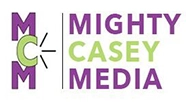From HX Refactored in Boston in June 2017, this – “Jeopardy Meets The Price Is Right, Healthcare Edition” HXR 2017: Casey Quinlan: Jeopardy + The Price Is Right: Health Care Mashup Edition from HxRefactored on Vimeo.
See this UPDATE, too. Sundays are pretty quiet here in Mighty Casey Media Land. Yeah, there are those Sundays where I read my wall calendar without my glasses on, and totally think it’s Father’s Day when it’s really Flag Day … but that’s about as exciting as it gets most weeks. Today is one of the latter Sundays, where I not only cause a Father’s Day panic on Facebook (yeah, that’s a thing), but also get Twitter DMs that set my hair on fire. Which you know, if you’ve been hangin’ round this water cooler for a while, is never a good thing. This morning, I picked up my phone while I was waiting for my coffee to brew, and what ho – a DM from my friend HealthBlawg with a link to a “stupid patients, don’t Yelp doctors” piece on US News with the headline “Online Doctor Ratings Are Garbage.” The piece is by Niam Yaraghi, whose pieces on US News usually have me nodding along in full agreement … but not this time. In the “don’t Yelp, bitch” piece, Yaraghi essentially tells people they’re too stupid to understand medical care’s value and outcomes, that we should just lie back and think of England and let those nice doctors do their work. Let’s take ’em in order, shall we? Patients are neither qualified nor capable of evaluating the quality of the medical services that they receive. Seriously?? Does Yaraghi know any cancer patients, or people with MS, or ALS, or rheumatoid disease, or diabetes? I’m pretty sure the answer there is “no,” that he knows a whole bunch of polysyllabic “experts” due to his work at Brookings, but very few ASPs (Actual Sick People). The patient community is teaching the clinical community constantly about both medical research and business operations. I’ll say it again: input from the patient community is, daily,…

I had the great good fortune of being tagged as an ePatient Scholar for the 2013 edition of Stanford Medicine X. That allowed me to sit at the feet – literally, since the ePatients were the mosh-pit for the three day conference plenary stage – of some of the best and brightest minds in healthcare. And guess what? Many of those best/brightest were … PATIENTS. MedicineX (a/k/a MedX and #medx) is the uber Patients Included medical conference. It grew from seeds planted at conferences like Health 2.0 and Patients 2.0, for which seeds-to-beautiful-flowers gardener credit goes to Dr. Larry Chu and his team from Stanford Anesthesiology AIM Lab, who seem to prestidigitate rabbits out of hats without breaking a sweat. Or the hats. Or the rabbits. MedX – in my opinion, at least – trumps every other Patients Included event by not just including patients, but by putting them front and center throughout the program. In fact, I cannot think of a session that I attended that didn’t have someone who was there primarily as a customer of healthcare (commonly called “a patient”) on the platform, presenting or participating in a panel discussion. My ePatient socks were knocked off from jump thanks to the opening keynote by Michael Seres and Marion O’Connor on “The New Engaged Patient,” which was the morning keynote on Friday. Michael uses his blog as his personal health record, up to and through a lifetime battle with Crohn’s disease that led to his becoming the 11th patient to ever receive a bowel transplant, and only the 6th to survive that transplant experience. Michael is hilarious, and Marion is exactly the sort of caring brainiac any patient would like bedside as s/he battled a life-threatening illness. Here’s the video of their session: The rest of the day played out as a firehose of ePatient awesome,…



